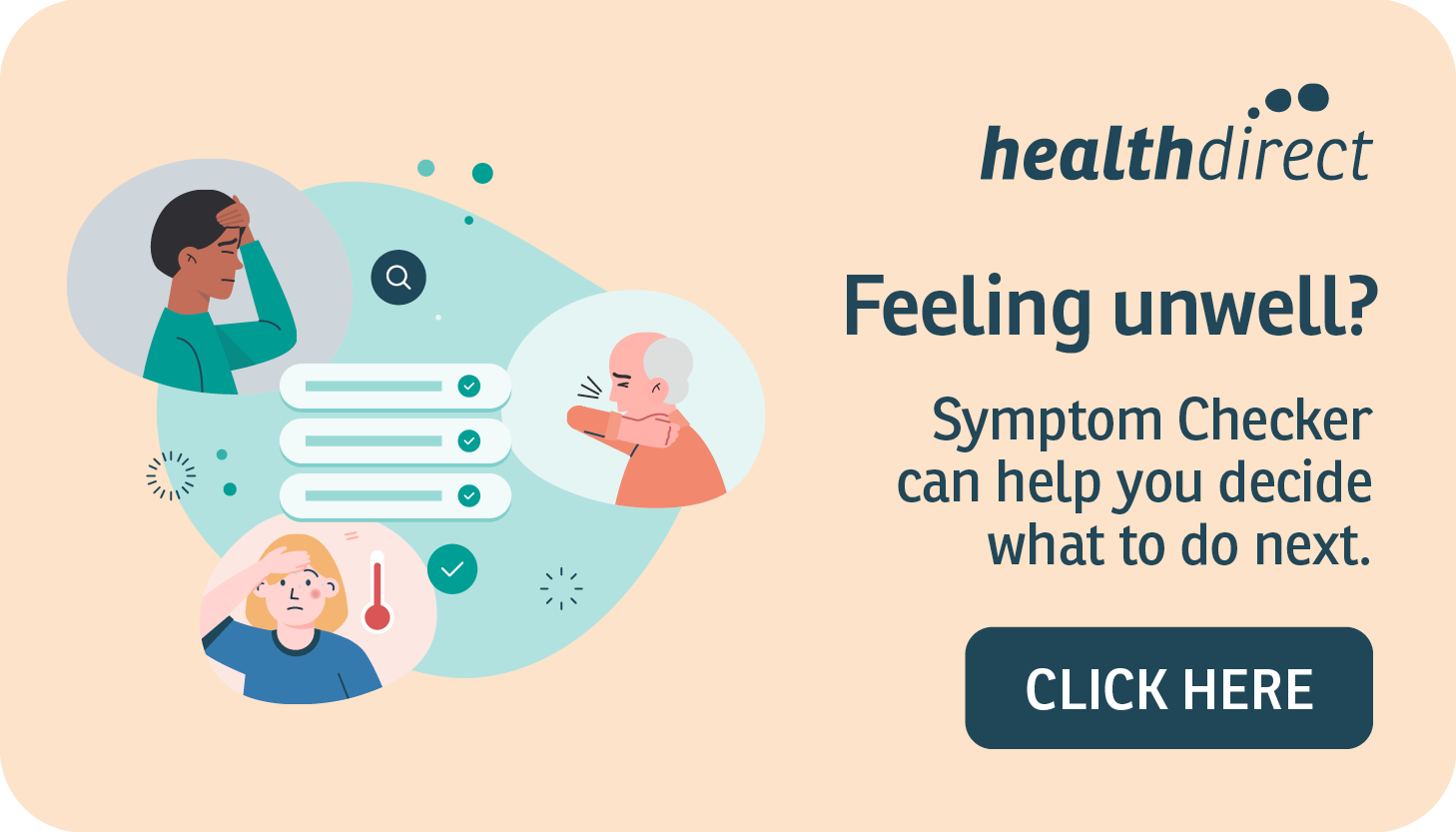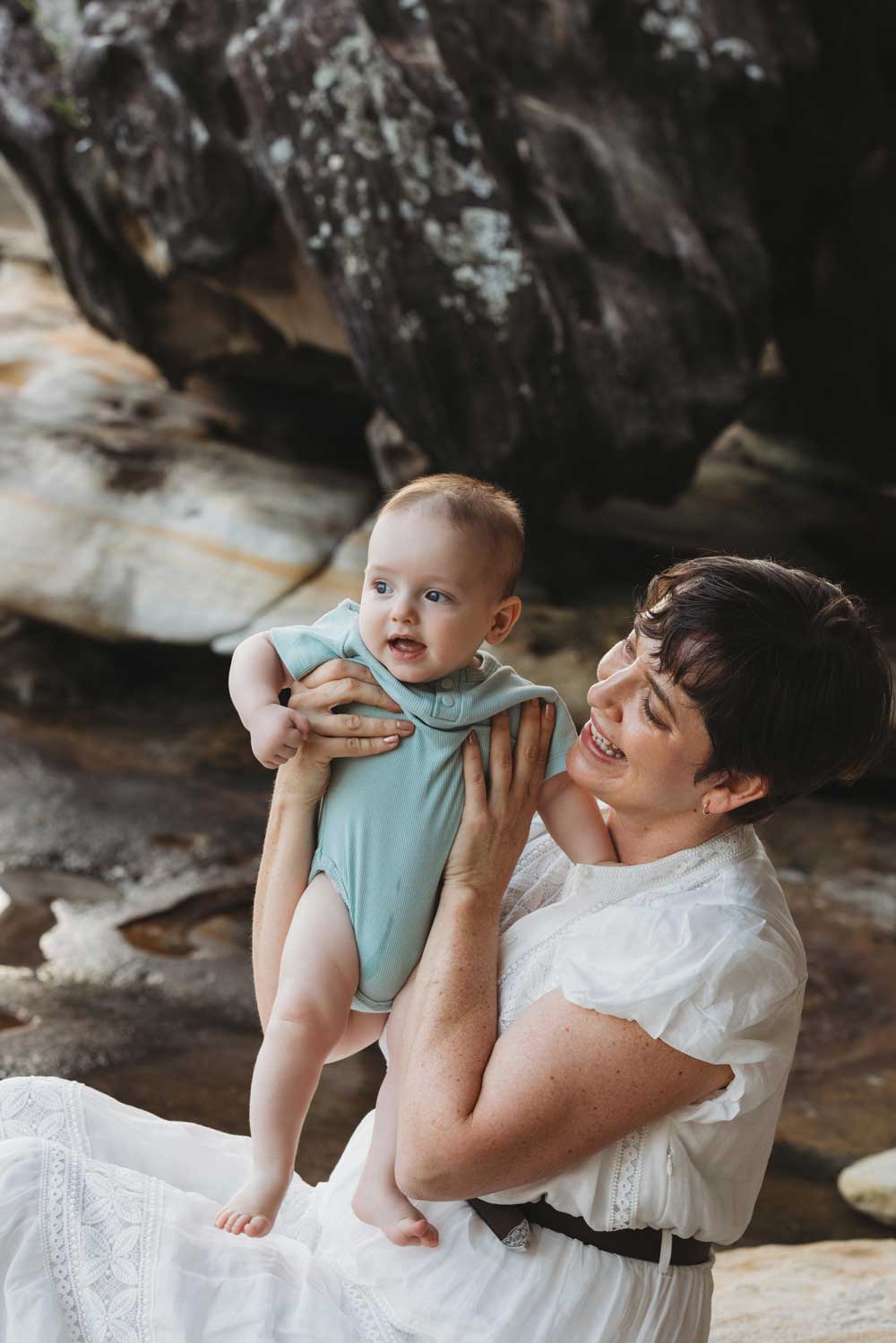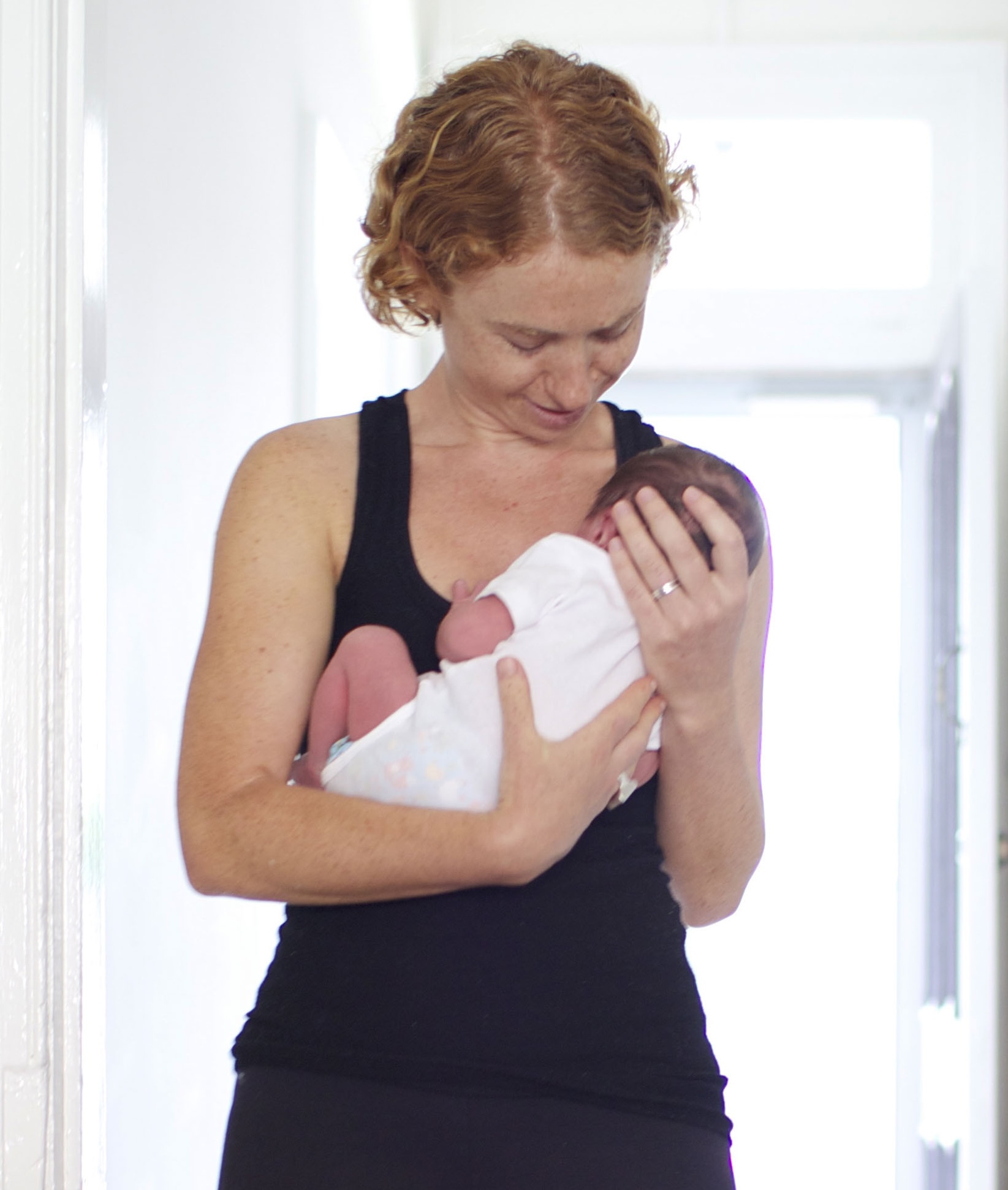I’d been inside bouncing for four hours when it happened. l flung open the door to our unit, stepped outside and ran. I ran until I found myself under a tree in the park next door. I was still bouncing. Up. Down. Up. Down. Three month old baby Rose had been in my arms the whole time. Screaming. Our dash outside had been desperate. Unplanned.
I’d rushed past our neighbour. “Everything ok?” he asked awkwardly. “Yep – Rose is just going for her first ocean swim” I quipped. Ha ha – joking! I think. Maybe. I don’t know. I was just running. I couldn’t stay inside our home a second longer. I couldn’t stop bouncing. I was silently sobbing. Every time I breathed out and emptied my lungs, I wasn’t sure how and where I’d get the energy to suck in the next breath. Rose just kept screaming.
My husband Mark and I had always planned on being parents. It was always part of the picture. When I fell pregnant, Mark was the one who immediately took to the role of Dad. He was proudly showing people the ultrasound pictures and rubbing my belly. Whereas I just felt like I was me, with a tummy. It wasn’t that I felt disconnected; I was just waiting for that feeling of being a mother to naturally kick in.
So much is made of that moment when a parent holds their baby for the first time and bursts into tears. I didn’t have that. When Rose first arrived, I felt okay. But I also felt numb. I’d read other people’s professions of undying love to their new born on social media, how they’d instantly felt this connection. It’s not that I hated my baby. I just felt nothing.
Complete strangers would look at Rose and tell me how beautiful and amazing she was. I couldn’t see it. That in itself isn’t a sign of post-natal depression, but it’s how you handle that feeling. For me, eventually that numbness turned into guilt. I beat myself up about that from the get go.
We had a lot of friends with kids and to be honest my expectations of parenthood were low. I was prepared for the lack of sleep and just how rough and hard it is – and maybe that was half my problem.
Before the birth I’d had treatment for anxiety. I would experience panic attacks and a general anxious feeling both at work and at home. It’s something I’d been dealing with for the past few years.
Then along came Rose, and for the first seven months of her life she was waking up every 40 minutes. At other times she would cry inconsolably for hours. I remember thinking, ‘I’m supposed to be unhappy and Rose is supposed to cry and none of us are supposed to sleep’. I didn’t seek help.
I was barely eating or sleeping and spent most of my time upright with Rose on my chest, because that was the only way she could at least get a little bit of sleep and the screaming would stop for a while. It was the screaming that did my head in.
On occasions it got to the point where I would just lay her on the floor and step back. I was worried about what I would do if I held her. I would take a few deep breaths and then go back to try and comfort her. I started to blame myself, thinking that it was me doing this to Rose.
My husband Mark doesn’t have set working hours, so not knowing when he’d come home was hard. My parents and in-laws all live interstate, and although they’d fly to see us when they could there were many weeks when it was just Rose and I.
We tried everything imaginable to help our baby girl. Different formulas. I changed my diet. We bought every swing contraption in the book. We tried baby massage and ointments. For a month we did controlled crying – even though it tore me up. I turned myself inside out reading contradictory parenting books and online forums. We wasted so much money trying to ‘fix’ things.
There were so many bad days. But that one particular day when I ran out of the house with Rose was one of the lowest. She just wouldn’t stop screaming. Looking back now, she was clearly in pain. I didn’t know it yet, but Rose had silent reflux, food allergies and intolerances. That diagnosis was still a few of weeks away. But all I kept thinking was – I’m clearly doing something wrong.
Over and over the same words were swimming in my head. “I’m stuffing up this poor perfect little girl. Rose and Mark would be better off without me”. I just wanted to disappear. To go away. Eventually – I just wanted to die.
The screaming and the sleepless nights stretched on month after agonising month. I was just existing. I look back now and I don’t even know how I’m alive. Flags began going up with doctors and nurses who saw me, “Yes, it’s supposed to be hard but it’s not supposed to be this hard,” they told me. “You should still have some enjoyment, some happiness and some connection with your baby.”
I can’t tell you exactly what kept me going. But I know the things that made a difference. Medication was one. It was something I felt guilty about and wondered if it was causing problems in Rose as well. But I knew it was essential to manage my anxiety and I wouldn’t be here without it. Other times I would just stand at the sink and pour cold water over my hands and let the sensation shock me, to feel something. At one point a friend said, ‘This too shall pass. This will get better. You’re in the trenches at the moment.’ I didn’t know it at the time but it was probably the best advice I was given.
I was referred to a psychologist, which helped a lot with separating the irrational thoughts from the ones worth worrying about. The psychiatrist validated that I wasn’t just sad, I was sick. To hear that diagnosis was devastating, but it also made me see that this was more than me not coping.
In general, I found there was wonderful awareness around post-natal depression. Whether it was the local family health nurse or the GP, everywhere I went to get help for Rose, I was being checked too. I think we’re breaking down the stigma of mental health and perinatal and postnatal depression in this country.
But there is a gap when it comes to getting access to the services at a rate that’s affordable – and I felt that.
When I first tried to book in to see a psychiatrist, I was told there’s a four month waitlist. I burst into tears, ‘I’m not going to last through the day, let alone four months,’ I wailed. When you do get help, it’s prohibitively expensive. Like many families, we were down to one income when I was on maternity leave. The psychiatrist cost $400 a session – and Medicare doesn’t even cover half. There were a number of times I cancelled mental health appointments because Rose needed formula or new clothes and I only had a limited amount of money in the account.
That’s why when I heard about the Gidget Foundation Australia, I learnt they provide ten free face to face psychological appointments for new Mums and even offer video conferencing counselling. I didn’t know about any of this at the time. I immediately came on-board as an ambassador. I went back to work when Rose was seven months old. By then I’d got to a point where I thought I was doing such a bad job being a mum, I knew the one thing I could do was be a journalist. Rose’s sleep in the daytime had improved by then but the nights were still all over the place. Going back to work was impossibly hard, particularly on days when I’d had so little sleep, but it was worth it. It helped my self-esteem and gave me a little bit of my old personality and life back.
Shortly after returning to work a young producer came up to me and said, ‘Motherhood suits you so well – I love all your Instagram photos.’ I nearly fell over. I didn’t want to be another one of those mums putting all those “perfect” photos out there when the reality was so far from it.
Rose turned two a few months ago. When I think back to those first few months compared to where we are now, I didn’t even realise it but little by little, almost without me even noticing, things got better. (Even though Rose still wakes up multiple times a night.)
Am I cured? No. There are days when I chat with colleagues and friends or stare down the camera focused, smiling, reading the news – but anxiety screams in my head and bubbles in my belly, often fuelled by a night of no sleep and silly thoughts. That doesn’t make me less of a mum, wife, daughter, sister, friend or journalist. It doesn’t define me. And it’s no one’s fault. Not Rose’s. Not Marks. Not mine.
But post-natal depression will always be with me because it took away precious moments with my daughter. Even now when I look back at photos of Rose as a little baby I feel so much sadness because I know how desperate and alone I felt.
I also look back and think, what if I had done something crazy and hurt myself. Those moments were terrible and dark and it often felt like the only option. But knowing Rose now, I realise how much I would have missed out on. I do everything I can to make up for lost time.
I also think about Rose becoming a mother one day, and if she does how I would never want her to go through what I did – to feel so lonely and desperate. That’s maybe my biggest motivation.
I wanted to keep my story secret because part of me is still so ashamed and confused, but I’ve learnt no good comes of that. I just I hope that by sharing my experience even one person, one family going through something similar, will hear it. I need people in this situation to know what I didn’t. That you just need to be patient, that it will get better if you give it time. It may take six weeks or three months or longer – there is no marker. But you just need to know that it will get easier and that one day you will wake up and just feel lighter.
Davina's Story
Please submit your details below and we will be in touch soon.
Related Fact Sheets

.png)

















%202.jpg)




.png)

